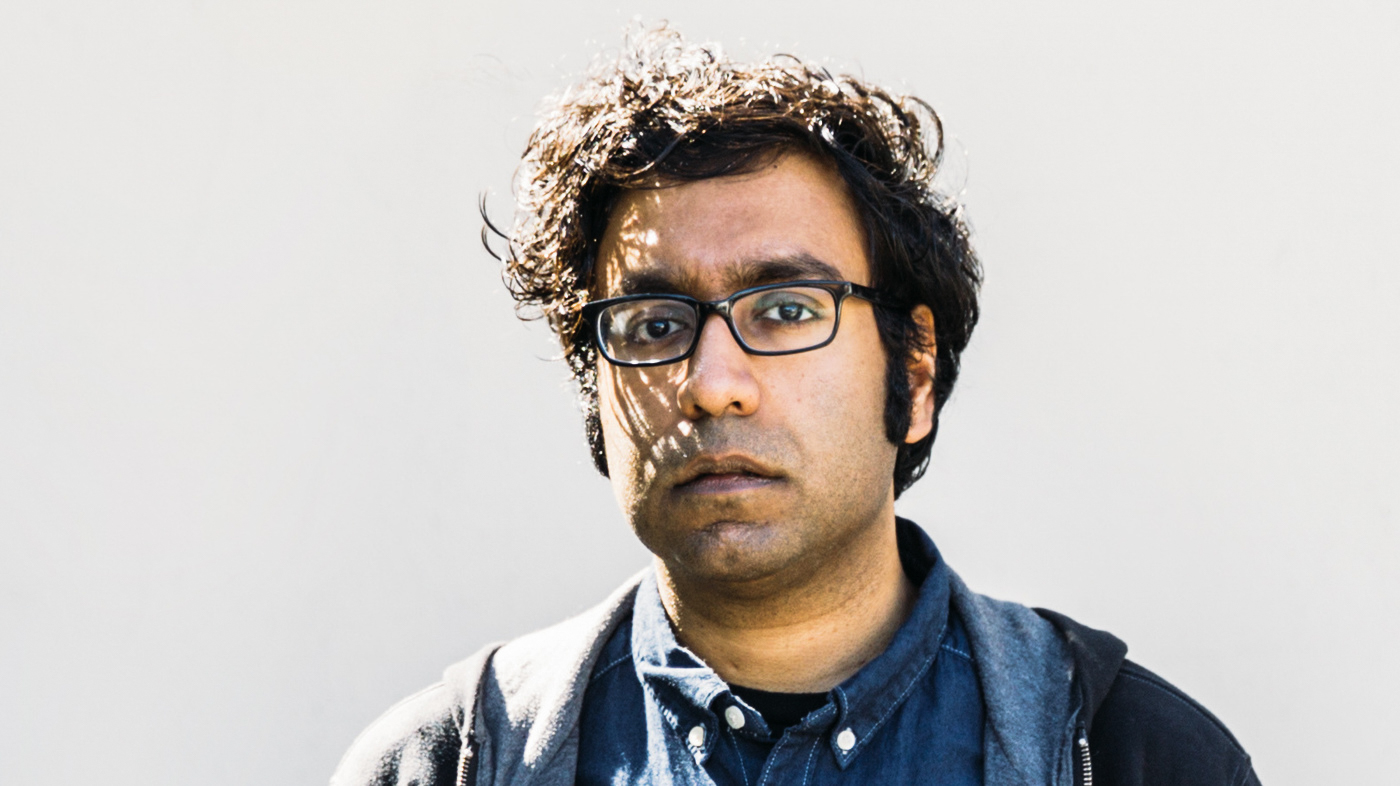
c/o npr.org
Humor and political correctness have always held a tenuous relationship. Comedians often cross the line between what’s pushing the envelope and what’s outright insulting, arguing against those offended by their overstepping that in comedy, anything goes.
But Hari Kondabolu has probably never had that problem. Instead, he twists the views that are almost unanimously agreed upon on the coasts of America into hilarious cracks, speaking out against discrimination and white liberalism while simultaneously producing raucous laughter from his audience.
This weekend, Kondabolu stopped by Crowell Concert Hall on a liberal arts school tour to deliver some of his PC-approved punch lines to, arguably, the exact audience they were intended for: His set was tailored towards a university filled with white liberals who think their “woke”-ness allows them free reign to postulate on all racial or economic issues. Kondabolu’s humor and Wesleyan specific references landed smoothly, his brief stint at the University in 2002 as a Twelve-College Exchange student serving him well.
Greeting the audience with “Hello, future Brooklyn,” Kondabolu set the tone for a night where he was always aware of his audience and able target their specific brand of humor, and, not to mention, poke at their flaws. Not only did he try to recall a few names of buildings at Wesleyan, but he also mentioned he had actually applied back in high school and was waitlisted.
“I thought I was weird enough!” he said psuedo-wistfully, recalling that Bowdoin, the school he attended instead, had informed him there was supposed to be a surge in diversity the year he came. According to Kondabolu, he was the surge.
A parody of slam poetry soon ensued, after Kondabolu claimed his jokes sound like shitty slam poetry when they don’t land properly. Other specifically liberal-arts-targeted bits included one about the kids who had the same last names as buildings—“but it’s not a coincidence,” Kondabolu said with false ominousness. It was here that he drove home his vague recollection of the Wesleyan campus, describing the moment when these students admit to the link: “Yes, I do happen to be related to Mary Lo-rise.”
What’s interesting about Kondabolu is his liminal identity, one that he brought up during his show. He is both a man of color of South Asian descent, but is also of the gentrifying Brooklynite demographic, so his insight into this oft-parodied society is self-deprecating, as critical as it might be. One such instant can be found in his reflection on being what he calls a “gentrifier of color.” Whenever his non-white neighbors complain about the neighborhood being filled with white yuppies, he pretends to throw his arms up in parallel frustration, knowing deep down that he is actually one of the gentrifiers. “I’m also a piece of shit like you,” he said, turning to his audience for the jab.
It’s also clear that Kondabolu is a part of a very specific network of South Asians in both comedy and in the entertainment world. A picture on his Facebook page captioned “The Indian Illuminati…plus Joe Biden” features the former vice president along with Kondabolu, “The Daily Show’s” Hasan Minhaj, Kal Penn, and Aasif Mandvi—all familiar faces in the world of humor, and all South Asians. At one point, he even went into an impressive imitation of Aziz Ansari’s pre-pubescent voice, before reassuring the crowd, “No, I know him. He’s great.”
Kondabolu’s influence also extends outside the world of comedy—he shared a few stories about his brother, Ashok Kondabolu (also known as Dapwell), who was the hype man for Das Racist. In fact, Kondabolu now joins his brother on a podcast and improvised talk show that they perform live in Brooklyn, known as the Untitled Kondabolu Brothers. They started the project in 2011. He even discussed his friendship with activist and author bell hooks, a relationship that he joked makes him feel “guiltier than I ever have.”
But, as with many comedians, Kondabolu’s best moments take form when he makes fun of white people. His sardonic impressions and assertions are not rare in comedy but are unfailingly hilarious—one especially uproarious moment was his impression of a white person finding water with lemons spicy. He also uses this mockery to enact his habitual criticism of elite white liberals, or even imperialism, such as when he explains the history of the beloved Alfonso mango, named for a man who also tried to commit a mass genocide. He then quickly flips the dark irony into lighter humor, punch-lining with, “And they named the mango after him because the mango is THAT good!”
We live in a time—and go to a school—where political correctness is somehow everywhere and yet often seems empty-handed. Sometimes it even becomes further insulting, testifying to a more profound level of deep-seated racism, classicism, or white elitism. Kondabolu is wildly adept at pinpointing where exactly right ends and wrong begins, and he doesn’t care if his audience is implicated in the wrong part. In fact, I think he sometimes hopes they are.
Comments are closed